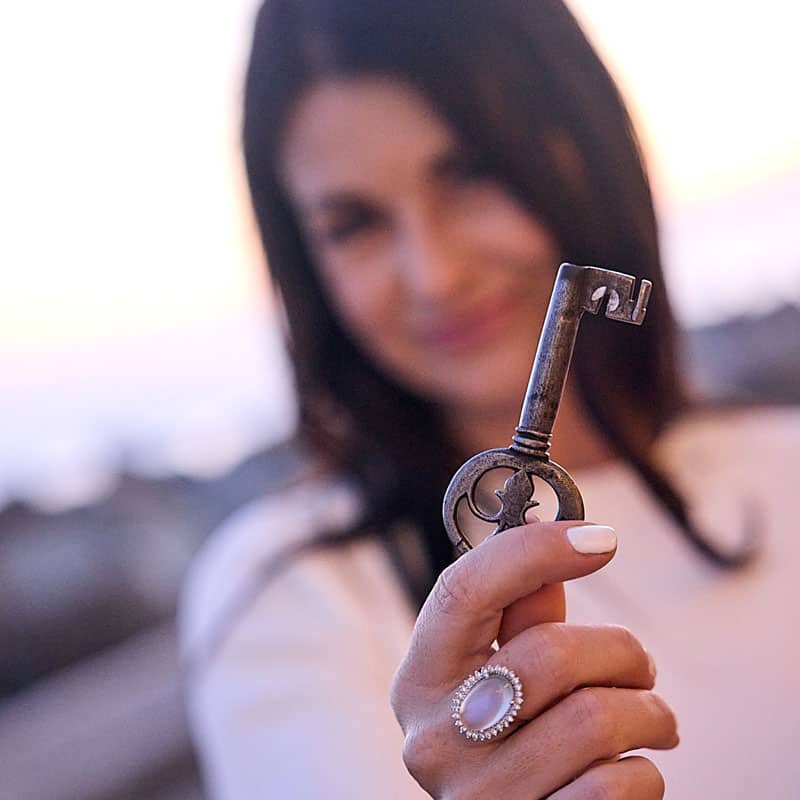Can You Feel Addicted to a Lover?

Have you ever been madly in love? Felt completely and utterly enamored with another person? Been so enchanted by your lover that you felt almost obsessed with them?
If you have, you know the experience I’m talking about. A special someone enters your life and you feel a tidal wave of attraction when they’re near. Just the sound of their name brings an instant smile to your face. You find yourself yearning to talk to them, touch them, and be close them because you feel incredible when you’re together. You think about them constantly. Even when you’re not together, you find yourself fantasizing about them and giddily gushing about them to your closest friends. Over time, this love interest quickly becomes the focal point of your mind, dominating your thoughts, emotions, and actions over everything else.
Falling in Love: A Naturally “Addictive” Experience
The overwhelming emotional, physiological, and psychological experience of falling in love can be so compelling that you can feel addicted to your lover (Earp et al. 2017; Fisher, 2004). Falling in love is associated with stimulation in a very old part of your brain that’s associated with survival known as the dopaminergic reward pathway (Filbey 2019; Fisher et al. 2002; Fisher, Aron, & Brown, 2005). As a result, being in love is associated with a hyper-focus on your lover as if you were addicted to them—constantly thinking about them, intense cravings to be near them, feeling euphoric when you’re with them, acting in ways to be close to them, and difficulty pulling yourself away from them even when you want to focus on something else.
In fact, many scholars argue that the very natural process of falling in love is actually biologically designed to make you feel addicted to your mate (Fisher et al. 2002). Think of it as our bodies’ way of encouraging us to have sex, make babies, and feel compelled to stay with a mate long enough to ensure the survival of any offspring (Earp et al., 2017). And, if your relationship is healthy for you, feeling addicted to your lover doesn’t seem like a bad thing. Quite the contrary: it can be an all-consuming, magical experience. But, if your mate doesn’t want you back or isn’t healthy for you, feeling addicted to your mate can throw you into a harmful cycle of heartbreaking symptoms that hurts your quality of life and general well-being (Warren, in press).
When Feeling Addicted to Your Mate Hurts You
Although not a clinical diagnosis, love addiction is a term often used to describe a pattern of harmful symptoms that center around a current or former love interest that cause negative consequences to a person’s life (Bobby, 2015; Sanches and John 2019). Some common and highly distressing symptoms of love addiction include:
- Obsessively thinking about your lover when you don’t want to
- Craving contact with your lover in a way that disrupts your life
- Feeling easily emotionally reactive and distressed because of your lover’s role in your life
- Acting in unhealthy ways to feel close to your lover or get their attention
- Distracting yourself from relationship discord in unhealthy ways, like drinking too much, hurting yourself, or acting impulsively
When you’re struggling with love addiction, you want to pull yourself away from your current or former lover but feel stuck and unable to let them go. These unwanted symptoms can dramatically harm your well-being, self-esteem, and ability to enjoy life.
The Naked Truth is This: Falling in love is one of the most intoxicating experiences we have as humans. Yet, if your relationship ends or you’re dating someone who isn’t healthy for you, being in love can throw you into a downward spiral of negative symptoms that severely harms your quality of life.
If you’re struggling with feeling addicted to a former lover, I recently wrote a self-help book based on a cognitive behavioral perspective of addictive behaviors called Letting Go of Your Ex (in press) which covers evidence-based tools to help you stop your unwanted preoccupation with your ex so you can create a wonderful new life adventure.
Organizations like Sex and Love Addicts Anonymous can also be very helpful to your healing process.
Copyright Cortney S. Warren, Ph.D. ABPP
Note: This content is only for informational and educational purposes and should not be considered therapy or any form of treatment. I cannot respond to personal requests for advice over the internet. Best on your continued journey.
References
Bobby, L. M. 2015. Exaholics: Breaking Your Addiction to an Ex Love. New York: Sterling.
Earp, B. D., O. A. Wudarczyk, B. Foddy, and J. Savulescu. 2017. “Addicted to Love: What Is Love Addiction and When Should It Be Treated?” Philosophy, Psychiatry, and Psychology 24: 77–92.
Field, T. 2017. “Romantic Breakup Distress, Betrayal and Heartbreak: A Review.” International Journal of Behavioral Research & Psychology. 5:217-225.
Filbey, F. M. 2019. The Neuroscience of Addiction. UK: Cambridge University Press.
Fisher, H. E. 2016. Anatomy of love: A Natural History of Mating, Marriage, and Why We Stray. Completely revised and updated ed. New York: W. W. Norton & Company
Fisher, H, A. Aron, and L. L. Brown. 2005. “Romantic Love: An fMRI Study of a Neural Mechanism for Mate Choice.” The Journal of Comparative Neurology. 493:58-62.
Sanches, M., and V. P. John. 2019. “Treatment of Love Addiction: Current Status and Perspectives.” European Journal of Psychiatry 33: 38–44.
Warren, Cortney S. (in press). “Letting Go of Your Ex: CBT Skills to Heal the Pain of a Breakup and Overcome Love Addiction.” New Harbinger Press.
Fisher, H. E. 2004. Why We Love: The Nature and Chemistry of Romantic Love. 1st ed. New York: Holt Paperbacks.
TO READ MORE OF DR. CORTNEY'S WORK, SUBSCRIBE TO HER BLOG
Safe subscribe. You will have the opportunity to opt-out with every notice we send.

